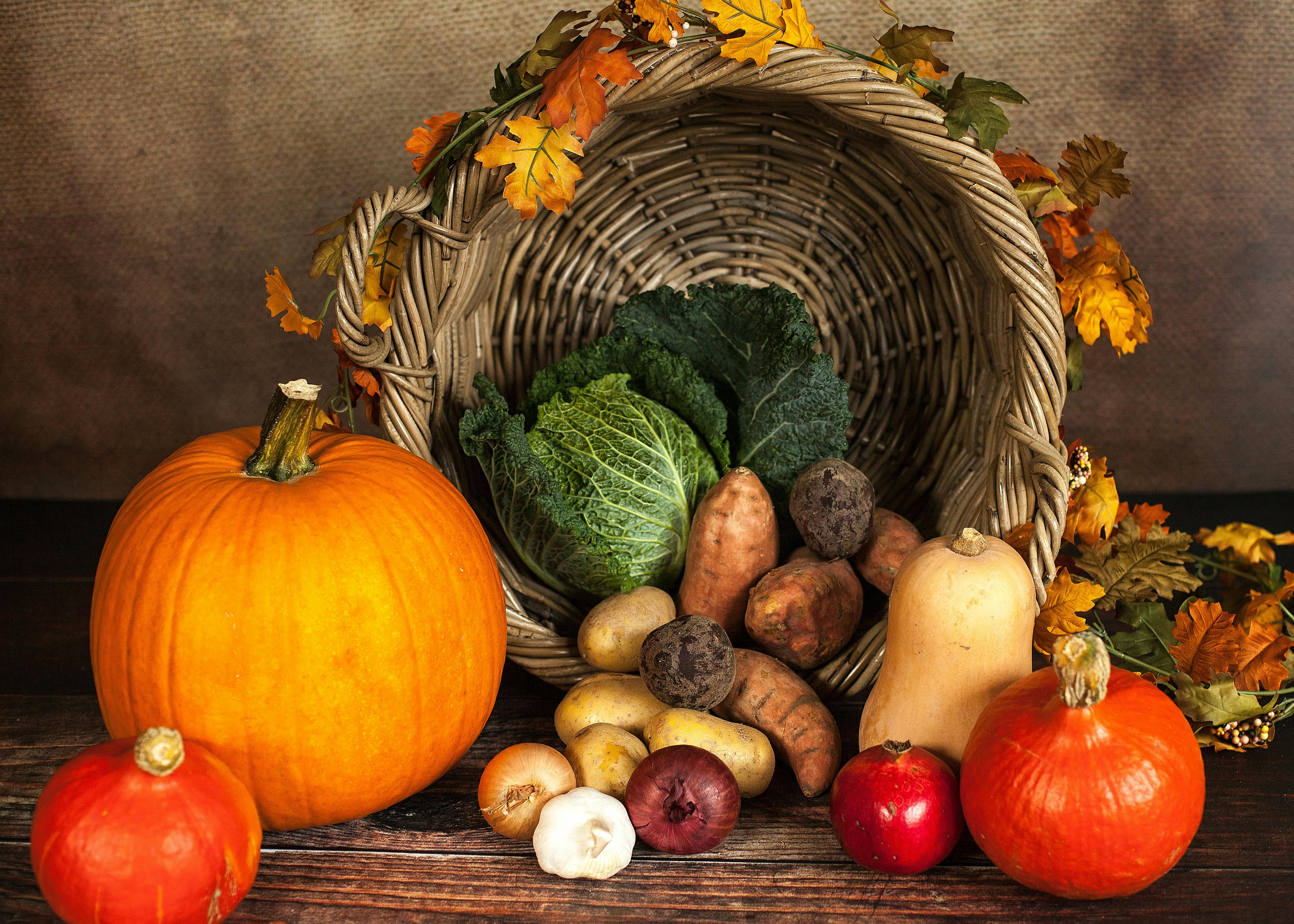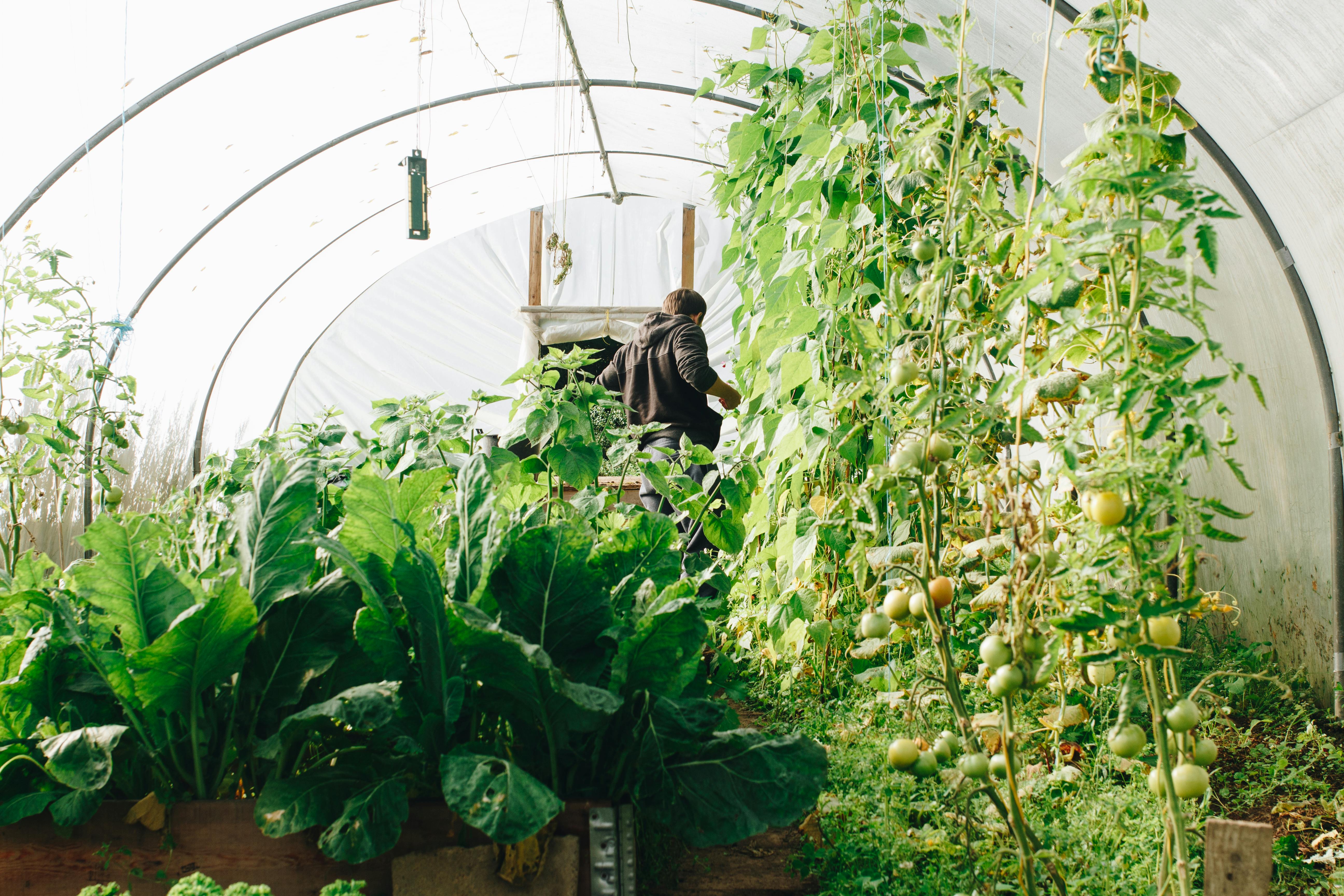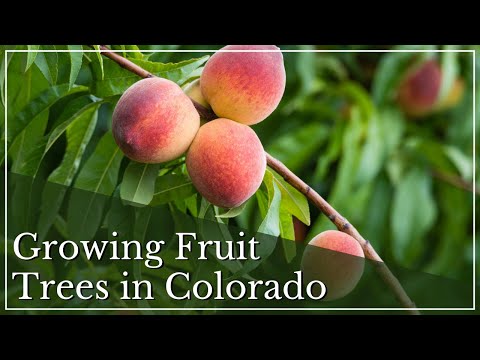Colorado is known for its rugged beauty and outdoor activities. But did you know that it also offers a variety of delicious fruits? Colorado has a variety of climates and soil types that make it an ideal place for growing many types of fruits. From the famous Rocky Ford Cantaloupe to the sweet Palisade Peaches, Colorado’s fruit selection is diverse and delicious. In this article, we will explore some of the fruits that grow in Colorado and how they are used in both culinary and medicinal ways.Colorado is known for its diverse and abundant fruit production. Various types of fruits are grown in the state, including apples, pears, apricots, cherries, peaches, plums, nectarines, strawberries, raspberries, grapes and melons. These fruits are grown in various parts of the state according to the climate conditions. Apples are especially popular in Colorado and are grown in orchards throughout the state.
Popular Fruits Grown in Colorado
Colorado is known for its abundant natural resources and diverse landscape, making it a great place for growing fruits! There are many delicious and nutritious fruits that are grown in the state, including apples, peaches, pears, cherries, apricots, melons, berries and grapes. All of these fruits make for great snacks or additions to recipes. Apples are one of the most popular fruits grown in Colorado. They can be eaten fresh or used in recipes such as pies and sauces. Apples provide vitamins C and K as well as dietary fiber. Peaches are another favorite fruit grown in the state. They have a sweet flavor and are a great addition to salads or desserts. Peaches also provide vitamin A and potassium. Pears are a tasty fruit with a crunchy texture that can be eaten raw or cooked into dishes like pies and cobblers. Pears provide vitamin C and dietary fiber as well as potassium. Cherries are popular in Colorado due to their sweet flavor and bright color. They can be eaten fresh or used to make jams and preserves. Cherries provide vitamins A and C along with dietary fiber.
Apricots are also grown in Colorado and have a slightly tart taste that makes them perfect for baking into pies or cakes. Apricots provide vitamins A and C along with potassium. Melons like watermelon, cantaloupe, honeydew melon, muskmelon, galia melon, casaba melon, Persian melon are all grown in the state providing excellent sources of hydration as well as numerous vitamins and minerals like vitamin A & C , folate , potassium etc . Berries such as strawberries , raspberries , blueberries , blackberries etc . also thrive here providing unique flavors when added to desserts . Grapes of various varieties also grow well here providing essential nutrients like vitamin K , antioxidants & minerals . All these fruits add color & flavor to dishes while providing important nutrient benefits .
Temperature
Fruits need to be grown in the right temperature in order to thrive in Colorado. Generally, most fruit trees require temperatures between -20°F and 100°F. This means that during the winter months, temperatures will need to be kept above -20°F in order for the trees and plants to survive. During the summer months, temperatures should be kept below 100°F in order for fruits to develop properly.
Sunlight
In addition to temperature, sunlight is also a very important factor for growing fruit in Colorado. Fruits need at least 6-8 hours of direct sunlight per day to grow properly and produce fruit. If there is not enough sunlight available, then the trees and plants will not produce fruit as they should.
Water
Adequate water is necessary for fruit trees and plants to thrive in Colorado. The amount of water needed will depend on the type of tree or plant being grown, but generally they need about 1-2 inches of water per week during the growing season. Additionally, soil should be well-drained as this will help keep the roots from becoming overly saturated with water which can lead to root rot.
Soil
Finally, soil is also an important factor for growing fruits in Colorado. The soil needs to have good drainage and aeration so that it can provide adequate amounts of nutrients and moisture to the roots of the trees or plants being grown. Additionally, soil should contain a pH balance between 6-7 so that it can provide optimum growing conditions for fruits.
Common Problems with Growing Fruits in Colorado
Growing fruits in Colorado can be a challenging endeavor due to the climate and soil conditions. Many gardeners face issues such as cold temperatures, short growing season, lack of moisture, and infestations of pests and diseases. These problems can be difficult to overcome, but with proper planning and care, a successful harvest can be achieved.
The cold temperatures in Colorado can make it difficult for many fruit crops to survive. Hardy varieties are the best choice for growing in this region, as they are able to tolerate the fluctuations in temperature. To further protect against frost damage, it is important to provide adequate mulch and windbreaks around the plants.
The short growing season is another challenge that gardeners must deal with when growing fruits in Colorado. Varieties that require a long growing season may not have enough time to mature before the end of the season. To maximize production, it is important to choose early-maturing varieties that will not be affected by early frosts or late snows.
Lack of moisture is another common problem when trying to grow fruits in Colorado. The dry climate makes it difficult for plants to take up enough water from the soil during their growth period. Regular irrigation is essential for keeping plants healthy and providing them with adequate moisture throughout the growing season.
Finally, infestations of pests and diseases can also pose a challenge for gardeners trying to grow fruits in Colorado. Keeping weeds under control and practicing crop rotation will help reduce the chances of an infestation occurring. Additionally, applying appropriate pest control measures at regular intervals will help protect against any potential damage caused by pests or diseases.
Overall, there are many challenges that must be addressed when attempting to grow fruits in Colorado. However, with proper planning and care, a successful harvest can be achieved despite these common problems.
The Benefits of Growing Fruits in Colorado
Growing fruits in Colorado can provide an abundance of benefits for gardeners and farmers alike. The state’s long growing season, due to its high elevation, allows for a variety of fruit crops to thrive throughout the summer and fall. A variety of soil types, from sandy loam to clay-rich, makes it possible to grow a wide range of fruits. In addition, the relatively mild winter temperatures and ample sunshine mean that most crops are safe from extreme weather conditions. With so many advantages to growing fruits in Colorado, it’s no wonder why so many people choose to do so.
One of the biggest benefits of growing fruits in Colorado is that the climate allows for a longer growing season than many other parts of the country. This means that you can get more yield out of your crops than you would if you were growing them elsewhere. Additionally, because the climate in Colorado is very dry and sunny, there is less risk for disease or pest infestation that can affect your plants at other times of the year. The lower humidity levels also help to keep your plants healthy and productive.
Another benefit of growing fruits in Colorado is that there are plenty of varieties available for gardeners and farmers alike. From apples and pears to peaches and apricots, there are plenty of options when it comes to choosing which type of fruit you want to grow. In addition, because this region has a great diversity in soil types and climates, it’s easy to find a type of soil that will suit your needs perfectly.
Finally, one of the most important benefits when it comes to growing fruits in Colorado is that they are generally very nutritious. Many types of fruits grown here have higher levels of essential vitamins and minerals than those grown elsewhere due to their exposure to more sunlight and higher temperatures throughout the year. This means that you can enjoy healthier snacks while still getting all the nutrients your body needs from these delicious treats!

Seasonal Availability of Fruits Grown in Colorado
Colorado offers a unique variety of fruits due to its diverse climate and topography. Depending on the region, there is a different selection of fruits available throughout the year. In some areas, there are fruits that are only available during certain seasons. Knowing the seasonal availability of fruits grown in Colorado can help you plan your meals and enjoy the freshest produce possible.
In general, Colorado has two main growing seasons: spring and summer. Spring is when many fruits begin to ripen and become available for purchase at local farmers markets or grocery stores. Berries such as strawberries, raspberries, blackberries, and blueberries are usually ready to harvest from late-April through mid-June. Other spring fruits include apricots, cherries, peaches, nectarines, plums, apples, pears, and melons like watermelon and cantaloupe.
Summer is peak season for most fruits in Colorado with an abundance of fresh produce available from late-June through September. This is when many varieties of stone fruit such as peaches, nectarines, apricots, plums, cherries as well as apples ripen. Melons such as watermelon and cantaloupe are also plentiful during this time along with grapes and berries like strawberries and blackberries.
The fall months of October through December bring cooler weather with it which signals the end of the main growing season for many types of fruit grown in Colorado. Fruit that is harvested during this time includes apples which can be stored for long periods making them available throughout winter months as well. Other fall crops include pears and grapes which can also be stored for longer periods so they remain available into winter months too.
Colorado’s seasonal availability of fruits offers something special for every season ensuring that residents have access to fresh local produce all year round! From spring berries to summer stone fruit to fall apples – there’s something for everyone no matter what time of year it is!
Planting Fruit Trees in Colorado
Fruit trees are an ideal addition to any Colorado garden. Not only do they provide fresh, juicy fruit for your family to enjoy, but they also have a range of other benefits. Planting fruit trees in Colorado can help increase the biodiversity of the area and provide habitat for beneficial insects and birds. Plus, with proper care, you can enjoy a bounty of fresh fruit for years to come. Here’s what you need to know about planting and caring for fruit trees in Colorado.
Choosing the Right Variety
The first step when planting a fruit tree is to choose the right variety for your climate and growing conditions. Colorado has a wide range of climates, from the dry high deserts of the west to the humid eastern plains, so it’s important to choose a variety that is well suited for your particular area. Generally speaking, apples, cherries, pears, and apricots are all good choices for Colorado gardens.
Preparing Your Soil
Before you plant your tree, it’s important to prepare the soil by adding organic matter such as compost or aged manure. This will help improve drainage and add essential nutrients that will help your tree thrive. You should also make sure that the soil is weed-free before planting.
Digging Your Hole
When digging a hole for your tree, make sure it is twice as wide as the root ball but only as deep – this will help ensure good drainage and plenty of room for roots to spread out. Be sure not to damage any roots when transferring from pot or bag to ground.
Watering & Fertilizing
It’s important to water your tree regularly during its first few weeks in its new home – ideally about once every two days during dry periods or after heavy frosts or winds have occurred. Once established, water deeply once per week during dry periods – too much water can cause problems such as root rot or fungus growth so adjust accordingly if needed.
Fertilizing should begin when flowers appear in spring and continue until autumn – an all-purpose fertilizer such as 10-10-10 works well but be sure not to overfertilize as this can burn young roots and cause stunted growth.
Pruning & Mulching
Pruning helps keep your trees healthy by removing dead or diseased branches while encouraging new growth and healthy fruit production. Mulching also helps keep weeds down while maintaining moisture levels in the soil – use organic mulch such as straw or bark chips but be careful not to pile too high near trunks or stems.
With proper care and attention, you can enjoy a bounty of delicious homegrown fruit from your own backyard! Planting fruit trees in Colorado may require a bit more effort than other areas due to our varied climates but with some knowledge and dedication you’ll be rewarded with delicious rewards!
Pests and Diseases Commonly Found on Fruit Trees in Colorado
Fruit trees in Colorado can be susceptible to pests and diseases, which can affect the health and productivity of your trees. Common problems include insect infestations, fungal diseases, and bacterial diseases. It is important to be aware of the types of pests and diseases that affect fruit trees in your area so that you can take action to protect your trees.
Common insect pests in Colorado include aphids, mites, scale insects, borers, leafhoppers, and caterpillars. Aphids are small sap-sucking insects that can cause a variety of plant damage including stunted growth and distorted leaves. Mites are incredibly tiny arachnids that feed on plant fluids resulting in yellowing leaves and wilting. Scale insects are small bugs that attach themselves to the bark of fruit trees and suck sap from the tree resulting in yellow foliage with sticky honeydew secretions. Borers are large moths or beetles whose larvae feed on tree tissue causing weakened branches or even death of the tree. Leafhoppers suck plant juices leaving behind white patches on the leaves while caterpillars chew through foliage creating ragged holes in leaves.
Fungal diseases are also common on fruit trees in Colorado including apple scab, brown rot, powdery mildew, fire blight, black knot, dieback, and root rot. Apple scab is a fungal disease caused by a fungus called Venturia inequalis which causes lesions on young foliage or dark spots on apples resulting in premature defoliation if not controlled early. Brown rot is a fungus called Monilinia fructicola which causes blossom blight as well as brown lesions on fruit causing them to rot before maturity. Powdery mildew is caused by several fungi species which results in white powdery spots on leaves or stems with stunted growth if left untreated for too long. Fire blight is caused by the bacterium Erwinia amylovora which results in blackened shoots or drooping branches if not removed quickly enough from an infected tree. Black knot is caused by a fungus called Apiosporina morbosa which affects plums and cherries causing swellings on branches eventually leading to dieback due to girdling of branches if left untreated for too long. Dieback is caused by several fungi species which leads to sudden wilting or death of branches due to fungal infection often leading to entire tree death if not treated quickly enough with fungicides such as copper sulfate or captan sprays. Root rot is caused by several fungi species including Armillaria mellea which attacks young roots leading to stunted growth due to nutrient deficiency if left untreated for too long leading eventually to complete tree death unless treated with fungicides like captan sprays regularly over time once detected early enough before it spreads throughout entire root system of tree.

Conclusion
Colorado has a diverse climate and geography that make it the ideal location for growing a wide variety of fruits. From the warm summers in the south to the cold winters in the north, Colorado offers a variety of climates that allow for different fruits to thrive. Apples, peaches, pears, plums, apricots, cherries, and melons are all grown in Colorado. Additionally, many citrus fruits such as oranges and grapefruits can be grown in greenhouses thanks to the warm climate of Colorado. With its unique climate and geography, Colorado is an excellent place to grow fruit.
Fruits grown in Colorado can be enjoyed year-round with fresh produce available during every season. Whether you’re picking your own apples at an orchard or buying stonefruit from a farmer’s market during summer months, there’s always something delicious waiting to be enjoyed from Colorado’s diverse fruit selection. So if you’re looking for a new way to enjoy locally grown produce or just want to explore more of what Colorado has to offer, try out some of the delicious fruits grown here!



